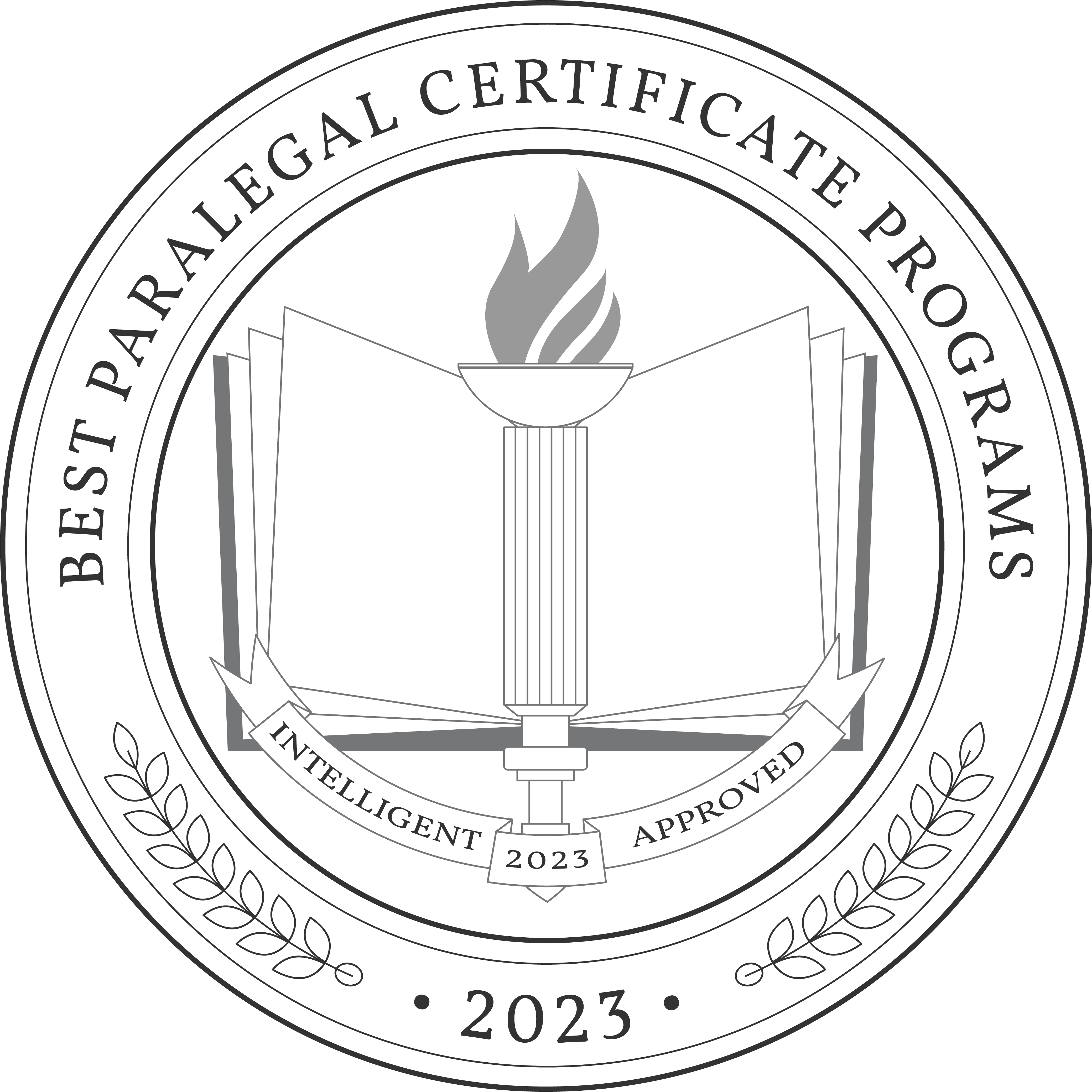Why This Matters
-
ANOTHER 35,300 PARALEGALS ARE NEEDED
The Bureau of Labor Statistics projects 10% job growth for paralegals and legal assistants from 2019 to 2029. This should amount to 35,300 new jobs by 2029.
-
PARALEGALS SPECIALIZE IN 8+ AREAS OF LAW
Paralegals can work in litigation or corporate law. They can also specialize in employment benefits, personal injury, criminal law, bankruptcy, immigration, family law, real estate, or other areas.
-
MAKE OVER $50,000 PER YEAR
The median annual pay for paralegals is $51,740. That’s more than $10,000 above the median annual salary of $39,810 for all occupations.
Our Research
We reviewed many paralegal certificate programs, including online, in-person, and hybrid programs. Online programs sometimes have a brief in-person component.
All of the programs we considered are regionally accredited, and many have received accreditation by the American Bar Association (ABA). Attending an accredited program ensures the quality of the curriculum, and any program that’s approved by the ABA will be widely accepted within the legal profession.
After narrowing down our list, we assigned the best ones Intelligent Scores of 0 to 100. This score sums up a program’s reputation, course strength, faculty, cost, and flexibility, and it makes identifying the best programs easy.
We evaluated each program on the basis of flexibility, faculty, course strength, cost, and reputation. Then we calculated the Intelligent Score for each program on a scale from 0 to 100. For a more extensive explanation, check out Our Ranking Methodology.
- 70 hours to write this article
- 200 universities and colleges we assessed
- 285 education programs we compared
The Top 48 Paralegal Certificate Degree Programs

Discover More Options
What You Should Know About This Degree
There are multiple ways to prepare for a paralegal career. Individuals can earn an associate’s degree, bachelor’s degree, or postsecondary certificate. The certificate programs listed here fall into the last category, and they’re generally intended for individuals who already have a four-year bachelor’s degree.
The number of bachelor’s programs in paralegal studies is limited, so many people pursue a bachelor’s degree in another major and earn a certificate after graduating from their four-year degree program.
If you don’t have a degree, you may want to pursue an associate degree, rather than a bachelor’s, and then a postsecondary certificate. Most associate programs take only two years to complete full-time.
Online programs can usually be completed entirely online, but a few might have a brief in-person component. Check whether a program has such a component before applying, and make sure any in-person portion would fit your schedule.
After earning a paralegal certificate, individuals can become a Certified Paralegal (CP) through the National Association of Legal Assistants (NALA). Although this credential is optional, becoming certified will make you more competitive in the job market. Becoming certified requires paying a fee and passing an exam.
What’s Next?
As you evaluate paralegal certificate programs, consider these questions:
- How long does it take to complete this online degree? Paralegal certificates vary widely in length, from as little as six courses to as many as 30-plus credits. One reason for such a range is because programs are designed for students who have different academic backgrounds. Make sure you meet a program’s academic qualifications and that a program’s length works for you before applying.
- Are courses offered synchronously or asynchronously? Programs may offer courses in a synchronous or an asynchronous format. Choose a synchronously formatted program if you’re able to attend classes at specific times, or go with an asynchronously formatted program if you need flexibility to complete coursework on your own time.
When you’ve identified a promising certificate program, contact the program or check its website to find out application requirements. You’ll need to know which materials to submit and when to submit them.
Also consider how you’ll cover the cost of a program. Non-degree certificates generally aren’t eligible for financial aid, but you might qualify for scholarships through a program or tuition reimbursement from your employer.